-
About
- About Listly
- Community & Support
- Howto
- Chrome Extension
- Bookmarklet
- WordPress Plugin
- Listly Premium
- Privacy
- Terms
- DMCA Copyright
- © 2010-2025 Boomy Labs
 Marc Binkley
Marc Binkley
Listly by Marc Binkley
I would recommend any of these books in a heartbeat. Which is your favorite?
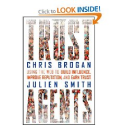
In Trust Agents, two social media veterans show you how to tap into the power of social networks to build your brand's influence, reputation, and, of course, profits. Today's online influencers are web natives who trade in trust, reputation, and relationships, using social media to accrue the influence that builds up or brings down businesses online.
The book shows how people use online social tools to build networks of influence and how you can use those networks to positively impact your business. Because trust is key to building online reputations, those who traffic in it are "trust agents," the key people your business needs on its side.
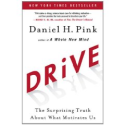
Drawing on four decades of scientific research on human motivation, Pink exposes the mismatch between what science knows and what business does—and how that affects every aspect of our lives. He demonstrates that while the old-fashioned carrot-and-stick approach worked successfully in the 20th century, it's precisely the wrong way to motivate people for today's challenges. In Drive, he reveals the three elements of true motivation.

"The Lean Startup has a kind of inexorable logic, and Ries' recommendations come as a bracing slap in the face to would-be tech moguls: Test your ideas before you bet the bank on them. Don't listen to what focus groups say; watch what your customers do.
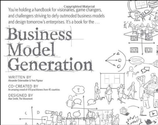
Business Model Generation is a handbook for visionaries, game changers, and challengers striving to defy outmoded business models and design tomorrow's enterprises. If your organization needs to adapt to harsh new realities, but you don't yet have a strategy that will get you out in front of your competitors, you need Business Model Generation.

Geoffrey A. Moore is the author of Escape Velocity, Inside the Tornado, and Living on the Fault Line.

You don’t have to live your life the way other people expect you to. You can do good things for yourself and make the world a better place at the same time. Here’s how to do it

What would you do right now if you learned that you were going to die in ten minutes?
Would you race upstairs and light that Marlboro you've been hiding in your sock drawer since the Ford administration? Would you waltz into your boss's office and present him with a detailed description of his personal defects? Would you drive out to that steakhouse near the new mall and order a T-bone, medium rare, with an extra side of the really bad cholesterol?
Hard to say, of course, but of all the things you might do in your final ten minutes, it's a pretty safe bet that few of them are things you actually did today.

Do the Work is a weapon against Resistance – a tool that will help you take action and successfully ship projects out the door.
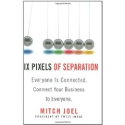
The truth is, we no longer live in a world of six degrees of separation. In fact, we're now down to only six pixels of separation, which changes everything we know about doing business.
This is the first book to integrate digital marketing, social media, personal branding, and entrepreneurship in a clear, entertaining, and instructive manner that everyone can understand and apply.
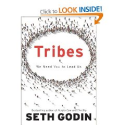
Now the Internet has eliminated the barriers of geography, cost, and time. All those blogs and social networking sites are helping existing tribes get bigger. But more important, they're enabling countless new tribes to be born?groups of ten or ten thousand or ten million who care about their iPhones, or a political campaign, or a new way to fight global warming.
And so the key question: Who is going to lead us?
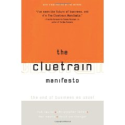
The Cluetrain Manifesto illustrates how the Internet has radically reframed the seemingly immutable laws of business--and what business needs to know to weather the seismic aftershocks.

The idea is simple: your flinch mechanism can save your life. It shortcircuits the conscious mind and allows you to pull back and avoid danger faster than you can even imagine it’s there.
But what if danger is exactly what you need?
What if facing the flinch is the one best way to get what you want?
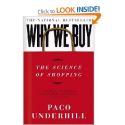
In his quest to discover what makes the contemporary consumer tick, Underhill explains the shopping phenomena that often go unnoticed by retailers and shoppers alike, including:
How a well-placed shopping basket can turn a small purchase into a significant sale
What the "butt-brush factor" is and how it can make sales plummet
How working women have altered the way supermarkets are designed
How the "boomerang effect" makes product placement ever more challenging
What kinds of signage and packaging turn browsers into buyers
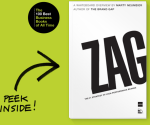
Zag – Preview Zag, the book that helps companies defeat their greatest competition: market clutter.

The Designful Company – Transform your company by unleashing the full potential of creative collaboration

Brains on Fire helps organizations build movements. Born out of the bond between word of mouth marketing and identity development.
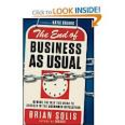
Brian Solis is principal at Altimeter Group, a research-based advisory firm. Solis is globally recognized as one of the most prominent thought leaders and published authors in new media. A digital analyst, sociologist, and futurist, Solis has studied and influenced the effects of emerging media on business, marketing, publishing, and culture. His current book, Engage, is regarded as the industry reference guide for businesses to build and measure success in the social web.
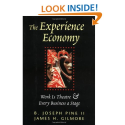
The Experience Economy: Work Is Theater & Every Business a Stage
Future economic growth lies in the value of experiences and transformations--good and services are no longer enough. We are on the threshold of the Experience Economy, a new economic era in which all businesses must orchestrate memorable events for their customers.

Everybody needs an EVIL PLAN. Everybody needs that crazy, out-there idea that allows them to ACTUALLY start doing something they love, doing something that matters. Everybody needs an EVIL PLAN that gets them the hell out of the Rat Race, away from lousy bosses, away from boring, dead-end jobs that they hate. Life is short.

How to Win Friends and Influence People is one of the first bestselling self-help books ever published. Written by Dale Carnegie and first published in 1936, it has sold 15 million copies world-wide.[1]

This new edition features commentary from the authors that offers fresh insight into why positioning a product in a prospective customers mind is still the most important strategy in business, and includes numerous examples of campaigns that followed, or didnt follow, Ries and Trouts thinking.

How can good companies, mediocre companies, even bad companies achieve enduring greatness?
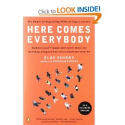
A revelatory examination of how the wildfirelike spread of new forms of social interaction enabled by technology is changing the way humans form groups and exist within them, with profound long-term economic and social effects-for good and for ill
